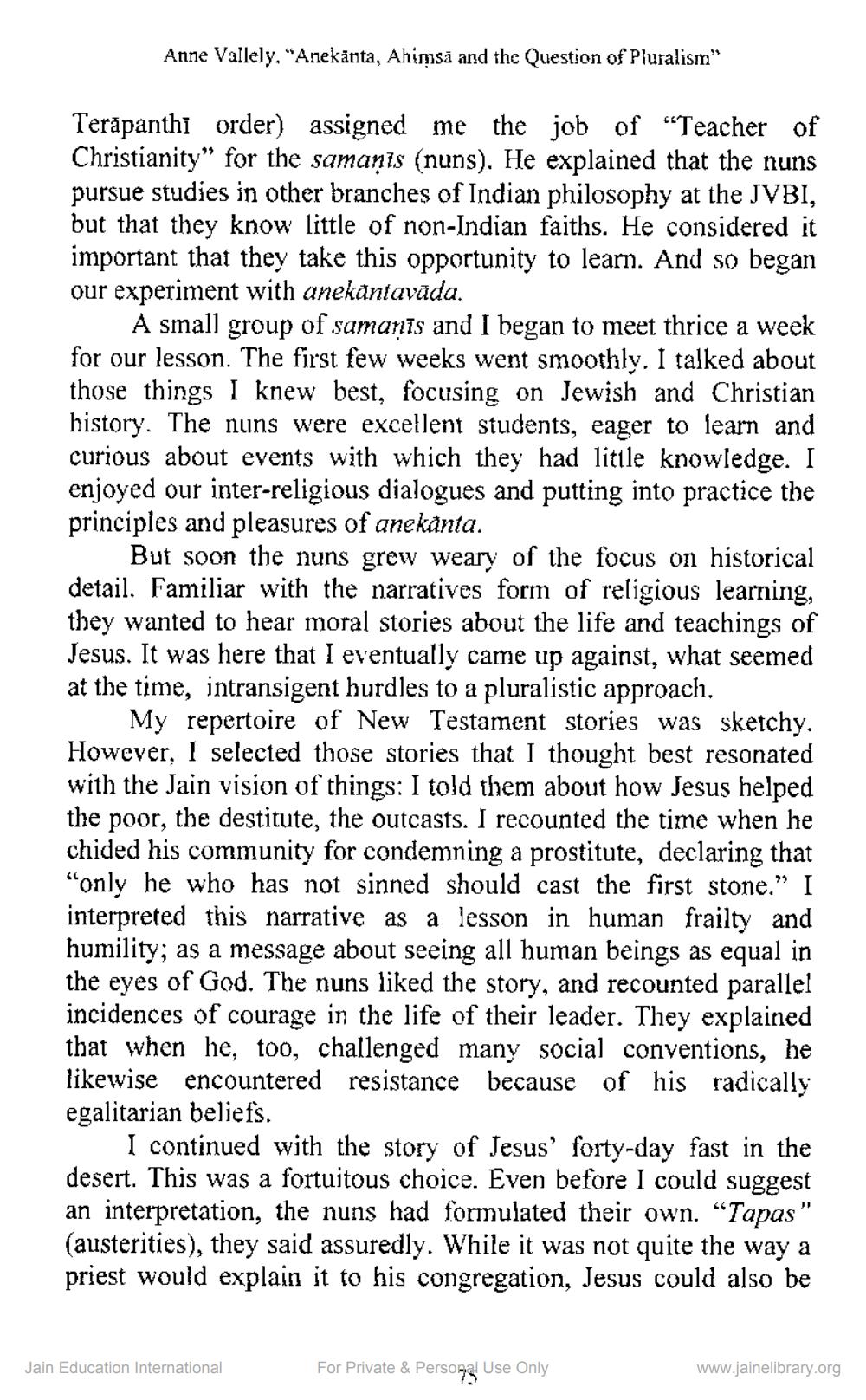Book Title: Anekanta Ahimsa and Question of Pluralism Author(s): Anne Vallely Publisher: Z_Lessons_of_Ahimsa_and_Anekanta_for_Contemporary_Life_014006.pdf View full book textPage 3
________________ Anne Vallely, “Anekānta, Ahimsa and the Question of Pluralism" Terăpanthi order) assigned me the job of “Teacher of Christianity” for the samaņis (nuns). He explained that the nuns pursue studies in other branches of Indian philosophy at the JVBI, but that they know little of non-Indian faiths. He considered it important that they take this opportunity to learn. And so began our experiment with anekantavāda. A small group of samanīs and I began to meet thrice a week for our lesson. The first few weeks went smoothly. I talked about those things I knew best, focusing on Jewish and Christian history. The nuns were excellent students, eager to learn and curious about events with which they had little knowledge. I enjoyed our inter-religious dialogues and putting into practice the principles and pleasures of anekanta. But soon the nuns grew weary of the focus on historical detail. Familiar with the narratives form of religious learning, they wanted to hear moral stories about the life and teachings of Jesus. It was here that I eventually came up against, what seemed at the time, intransigent hurdles to a pluralistic approach. My repertoire of New Testament stories was sketchy. However, I selected those stories that I thought best resonated with the Jain vision of things: I told them about how Jesus helped the poor, the destitute, the outcasts. I recounted the time when he chided his community for condemning a prostitute, declaring that "only he who has not sinned should cast the first stone." I interpreted this narrative as a lesson in human frailty and humility; as a message about seeing all human beings as equal in the eyes of God. The nuns liked the story, and recounted parallel incidences of courage in the life of their leader. They explained that when he, too, challenged many social conventions, he likewise encountered resistance because of his radically egalitarian beliefs. I continued with the story of Jesus' forty-day fast in the desert. This was a fortuitous choice. Even before I could suggest an interpretation, the nuns had formulated their own. “Tapas" (austerities), they said assuredly. While it was not quite the way a priest would explain it to his congregation, Jesus could also be Jain Education International For Private & Personal Use Only www.jainelibrary.orgPage Navigation
1 2 3 4 5 6 7 8 9 10
